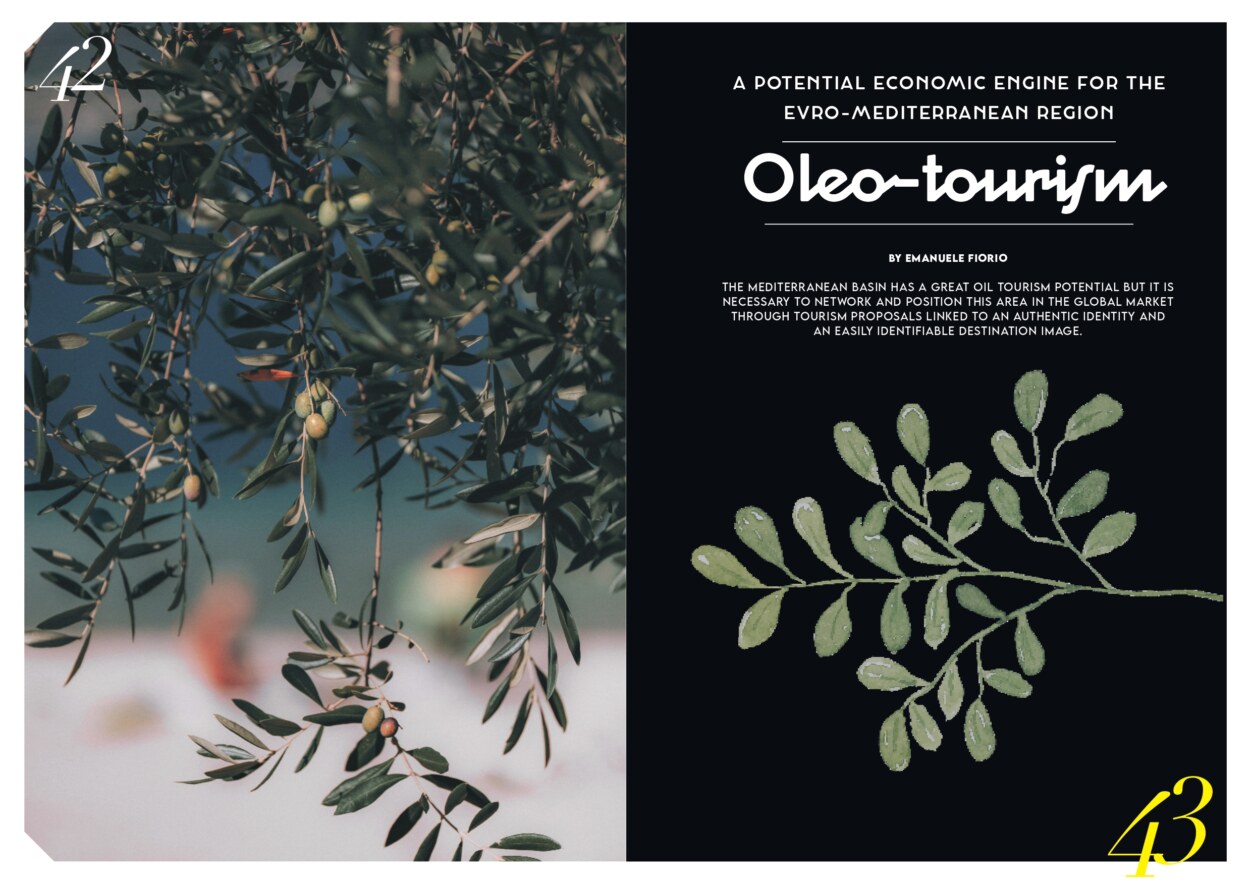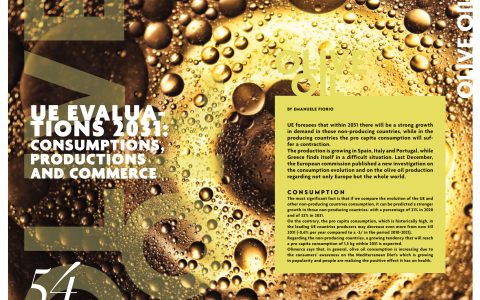Oleo-tourism: a potential economic engine for the Euro-Mediterranean region
The Mediterranean basin has a great oil tourism potential but it is necessary to network and position this area in the global market through tourism proposals linked to an authentic identity and an easily identifiable destination image.
by Emanuele Fiorio
EVO oil is gaining ground in the hospitality and tourism industries, paving the way for innovative methods to regional tourism growth and diversification of travel options, particularly in rural areas. The urgent need for innovation and qualification in the olive oil market is well recognized.
Although the concern to preserve the traditional olive groves of the Mediterranean dates back to the 1960s, when national (Olearum in Spain) and international (International Olive Council – IOC) associations were founded with this specific goal, it has only recently come to the attention of European municipalities to preserve the sector’s high value and the rich cultural heritage that surrounds it.
The industry is currently at a critical turning point, torn between the drive of globalization and the requirement to preserve traditional manufacturing methods and high-quality goods.
There is a clear trend toward the protection of olive oil’s extensive cultural heritage through a series of private and institutional initiatives (for example, in Italy, the “Associazione Nazionale Città dell’Olio” or the “Accademia Nazionale dell’Olivo e dell’Olio”), undertaken with the goal of emphasizing the importance of promotion and culture as a valuable mechanism to support the long-term profitability of the economies linked to olive oil and the Euro-Mediterranean community.
From the standpoint of tourism, it must be stated that, while there is rising interest in olive oil-based initiatives, there is still more work to be done to connect olive farming to tourists. According to the results of the research “Olive oil tourism in the Euro-Mediterranean area” of the University of Extremadura, there are few efforts in Europe that are explicitly pursuing new tourist systems based on oil products.
The program with the most worldwide awareness is Greece’s “The Route of the Olive Tree”, which serves as a good starting point. It is a cross-national itinerary centered on the olive tree and the Mediterranean that serves as a cultural link between Greece and other Euro-Mediterranean nations with a history of olive cultivation.
Furthermore, it is the first attempt to bring together various Euro-Mediterranean states who grow olives and have comparable challenges with the expansion of rural tourism.
Oleotourism can provide a substantial boost to these places by delivering various benefits:
- economic diversification
- unique and experiential offers
- social and cultural conservation
- clear competitive positioning in the global tourism market
- tourism proposals linked to an authentic rooted identity and an easily identifiable destination image.
Aside from the enormous potential of olive oil-based tourist projects, the industry faces several hurdles in developing this present trend into a sustainable and lucrative tourism enterprise.
The research “Olive oil tourism in the Euro-Mediterranean area” has brought out some of them:
- the absence of long-term cooperation among transnational parties, i.e. the presence of substantial connections beyond the temporary participation in a European project;
- a lack of a consistent brand and promotion activities and strategies for Euro-Mediterranean tourism locations specializing in olive oil-based offers and goods;
- the scarcity of infrastructures equipped to meet the special needs of oleotourists who demand open mills, well-planned oil-based experiences, and well-designed itineraries;
- the absence of an ongoing network of oleotourism activities
The most active nations in promoting olive oil tourism are Spain, Italy, and Greece; nevertheless, there are many more olive-growing regions in the Euro-Mediterranean area that, if linked together, can form a dynamic cluster for tourist growth.
Olive oil tourism in the Mediterranean region has a lot of potential, but in order to grow and expand, it must be able to:
- network and cooperate
- harmonize the peculiarities that exist in the olive oil sector
- position this geographical location in the global tourism industry with a unique proposition that meets foreign tourists’ expectations.





